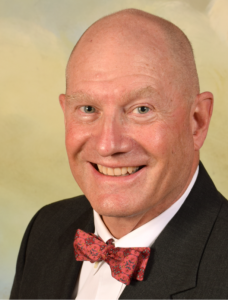A new antibody-drug conjugate (ADC) that targets B-cell acute lymphoblastic leukemia (B-ALL) is showing early promise in the fight against childhood leukemia. ALL is a cancer that involves the white blood cells of the bone marrow. It is the most common leukemia diagnosed in children and young adults.
Two grants awarded
Dr. Stuart S. Winter, chief of research and medical innovation at Children’s Minnesota, and Dr. Peter Gordon, a colleague from the University of Minnesota, were recently awarded grants to advance this drug research – one from the National Institutes of Health (NIH) and the other is from the Hyundai Hope on Wheels Foundation (HHOW). Dr. Joseph Muretta, also from the University of Minnesota, will play a key investigative role on the grant from the Hyundai Hope on Wheels Foundation (HHOW).

- The funded NIH grant (R21-CA280433) will allow the investigators to establish the efficacy of a newly created ADC that has high affinity and high avidity for VpreB1, which is commonly expressed in B-ALL. A series of experiments will be conducted to assess the B-ALL developmental stages of arrest that are targeted by the ADC, and whether the ADC spare the mature B-cell repertoire.
These experiments will require testing in B-ALL cell lines and in specialized mice that have unique immunological characteristics. Based on the outcomes of the experiments, the investigators will conduct a pre-investigational new drug application (pre-IND) meeting with the Food and Drug Administration (FDA) to learn about testing the VpreB1 ADC in a Phase 1 clinical trial. Dr. Winter applied to the FDA for orphan drug designation in May 2023, which is now under review. - The funded Hyundai Hope on Wheels Foundation grant will be used to create new immunotherapeutic molecules that will be designed to interfere with pre-B cell receptor (pre-BCR) signaling, either by binding to the surrogate light chain, or via allosteric inhibition of the Lyn/Syk signaling pathway that is important to B-cell survival. Once therapeutic candidates have been selected from a novel library of molecules, the candidates will be tested against the same cell lines and mice models used for the R21.
B-ALL relapse is a common problem
Relapsed disease is a common problem for patients with B-lineage acute lymphoblastic leukemia. Nearly all B-ALL cases share a relatively restricted repertoire of B-cell surface markers that are expressed at the pro-B or pre-B stages of B-cell development and treatment algorithms have been successful in assigning risk-adjusted therapies. However, relapse prevention is an elusive problem that hasn’t been solved.
Prevent reemergence of disease
VpreB1 is highly correlated with end-induction minimal residual disease (MRD). Dr. Winter and his colleagues previously showed VpreB1 with monoclonal antibodies (mAbs) diminished leukemia cell survival, either as a single agent or when combined with anti-proliferative therapy. These findings support the hypothesis that the pre-BCR complex can be precisely targeted in B-ALL to prevent the emergence of MRD.
Using the two-pronged research approach, the goal is to bring a drug or class of drugs into clinical use that will allow safer, more effective treatments against B-ALL. “We hope to make a meaningful contribution to the management of B-ALL for patients of all ages, across the entirety of the human lifespan,” said Dr. Winter.
About the cancer and blood disorders program at Children’s Minnesota
Children’s Minnesota is an established thought leader in pediatric hematology-oncology. Our clinicians provide a portal of access to experimental therapies for infants, children and young adults and have achieved international recognition for their leadership in pediatric medicine.
The Children’s Minnesota leukemia and lymphoma program is one of the largest in the region. We provide access to the most current national and international treatment protocols for chemotherapy, radiation, and therapeutics. Our multidisciplinary team of kid experts includes pediatric specialists from a wide variety of disciplines, including radiation oncology, surgery, anesthesia, pain management, psychology, pharmacy, exercise medicine, physical therapy, occupational therapy, nutrition, and others. Learn more about the cancer and blood disorders program here.
Doctors and healthcare providers call for 24/7 patient referral, admission and neonatal transport assistance. Learn more.